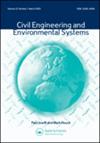关于专家为风险知情决策提供支持的误解和刻板印象
IF 1.1
3区 工程技术
Q3 ENGINEERING, CIVIL
引用次数: 1
摘要
一般来说,高水平技术和环境风险评估以及大规模决策的支持通常由合格的专家提供。专家经常受到赞扬,但也受到辱骂和指责,他们住在模型和专业知识的茧中,用算法、规则和技术程序武装自己,以证明所提供的支持是合理的。在一天结束的时候,专家们经常发现自己处于敏感和对抗的情况下,因为就高度不确定的问题进行沟通本质上是“有风险的”。本文的目的是阐明关于专家在决策中的作用的常见误解。各种不良的观念和刻板印象组织在一套广泛的神话或误解,本文试图以中立和客观的方式揭穿。将自己描述为决策支持专家的个人和组织的某些类型的错误行为也被识别出来。他们被归类为一系列负面的刻板印象,在与此类专家打交道时应该发出危险信号。本文中提出的缺点、缺陷和误解的分析带来了为风险知情决策制定的更强大和改进的实践提供解决方案的好处。本文章由计算机程序翻译,如有差异,请以英文原文为准。
Misconceptions and stereotypes regarding experts providing support for risk-informed decision making
ABSTRACT Support for high-level technical and environmental risk assessment and for large-scale decision making in general is typically provided by qualified experts. Often praised, but also reviled and blamed, the expert dwells in a cocoon of models and expertise and is armed with algorithms, regulations, and technical procedures to justify the support provided. At the end of the day experts often find themselves in sensitive and confrontational situations, as communication about highly uncertain issues is inherently ‘risky’. The objective of this paper is to throw some light on common misconceptions about the expert’s role in decision making. Various ill-conceived perceptions and stereotypes are organised in a set of widespread myths or misconceptions which the paper attempts to debunk in a neutral and objective manner. Certain types of flawed behaviour of individuals and organisations that portray themselves as decision making support experts, are also identified. They are categorised into a set of negative stereotypes that should raise red flags in dealing with such experts. The analysis of shortcomings, flaws, and misconceptions presented in this paper carries with it the benefit of providing solutions for a stronger and improved practice of risk-informed decision making.
求助全文
通过发布文献求助,成功后即可免费获取论文全文。
去求助
来源期刊

Civil Engineering and Environmental Systems
工程技术-工程:土木
CiteScore
3.30
自引率
16.70%
发文量
10
审稿时长
>12 weeks
期刊介绍:
Civil Engineering and Environmental Systems is devoted to the advancement of systems thinking and systems techniques throughout systems engineering, environmental engineering decision-making, and engineering management. We do this by publishing the practical applications and developments of "hard" and "soft" systems techniques and thinking.
Submissions that allow for better analysis of civil engineering and environmental systems might look at:
-Civil Engineering optimization
-Risk assessment in engineering
-Civil engineering decision analysis
-System identification in engineering
-Civil engineering numerical simulation
-Uncertainty modelling in engineering
-Qualitative modelling of complex engineering systems
 求助内容:
求助内容: 应助结果提醒方式:
应助结果提醒方式:


